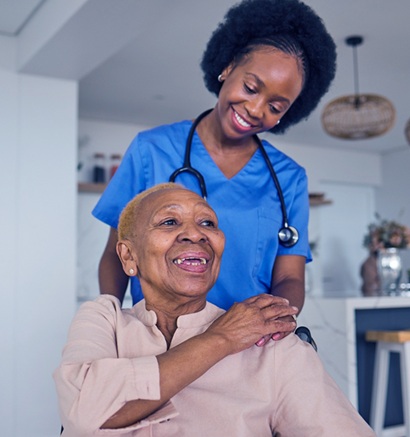Cultural Considerations in Elderly Care: Nigeria Perspective
As our senior population becomes increasingly diverse, it is essential to recognise and respect cultural differences in providing care. Here, we delve into how cultural norms significantly influence care practices for older adults in Nigeria.
1. Understanding Cultural Identity:
· Nigerian Diversity: Nigeria is a vibrant nation with over 250 ethnic groups, each contributing unique cultural practices, languages, and traditions.
· Cultural Identity: Recognizing the rich tapestry of Nigerian culture allows us to tailor care to individual needs, preferences, and beliefs.
2. Key Considerations for Culturally Appropriate Care:
· Language and Communication: Understanding regional languages and dialects is crucial for effective communication.
· Traditional Healing Practices: Acknowledging and respecting traditional medicine and healing practices.
· Religious Beliefs:
· Family and Community:
· Respect for Elders:
3. Challenges and Opportunities:
· Urban vs. Rural Context:
· Health Disparities:
· Stigma and Mental Health:
4. The Role of Healthcare Providers:
· Cultural Competence:
· Holistic Approach:
· Community Engagement:
Remember, cultural sensitivity isn’t just about ticking boxes; it’s about fostering genuine understanding, empathy, and respect for the diverse backgrounds of our cherished elders in Nigeria.
A comprehensive discussion on this topic is contained in our book below.
Book Launch
We are thrilled to announce the upcoming launch of our latest book:
"Elderly
Care in Nigeria: An Essential Guide to Navigating Services."
Ageing is a universal phenomenon, and Nigeria, like many other
countries, is experiencing a demographic shift towards an ageing population.
According to the World Health Organisation (WHO), the number of people aged 60
years and older in Nigeria is projected to triple by 2050. With this
demographic transition comes a pressing need to address the health and
well-being of older adults in the country.
This comprehensive guide delves into the intricacies of caring for the
elderly in Nigeria, offering invaluable insights, resources, and advice to
caregivers and families. Whether seeking information on healthcare services,
legal matters, or emotional support, this book is your ultimate companion. Be
the first to receive notification upon its release by signing up through our
website. Don't miss the opportunity to gain vital knowledge and support for
elderly care in Nigeria. Join us in making a difference in the lives of our
seniors.
Email info@eooncare.com and
request your copy.
EOON CARE
Elderly Care Team
info@eooncare.com
WhatsApp +234 816 7929 521
#elderlycareinnigeria #elderlycare
#caregivers #careoftheelderlyinnigeria
#ministeryofhealth #elderlyabuse
#who #unitednations
#socialservicesinnigeria
#carehomesinnigeria
#nigeriacarehomes





No comments:
Post a Comment